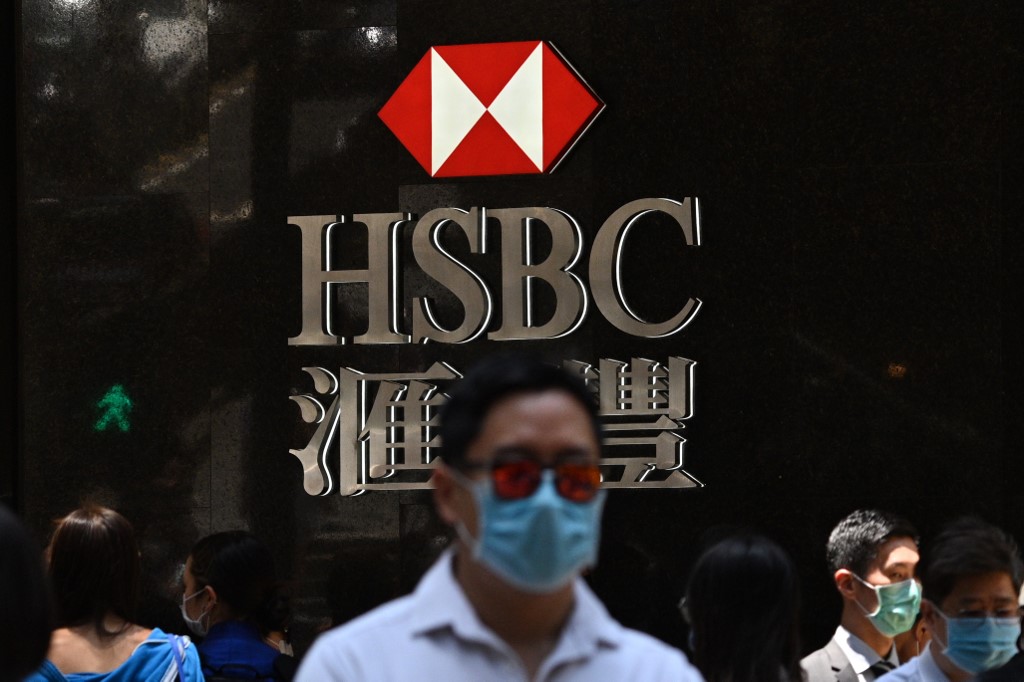(ATF) HSBC is in very hot water in China, accused by state media of providing key information that led to the arrest and detention of Huawei CFO Meng Wanzhou. Meng, the daughter of company founder Ren Zhengfei, is under house arrest in Vancouver and facing a hearing in the Canadian legal system on whether she should be extradited to the US for breaching sanctions on Iran.
Meng is accused of bank fraud for misleading HSBC about Huawei’s relationship with a company operating in Iran, putting HSBC at risk of fines and penalties for breaking US sanctions on Tehran.
On June 15, at the second round of hearings in the extradition case involving Meng, her lawyers submitted a memorandum to the Canadian Court. They claim Meng’s arrest was planned by the United States and that prosecution records submitted by the US Department of Justice show key evidence against Meng was provided by HSBC. They claim that the bank cooperated with the United States to allegedly “frame” Meng Wanzhou.
On June 17, the UK-based HSBC resumed a major layoff plan that was shelved temporarily after the coronavirus outbreak emerged. It has frozen external recruitment and is cutting at least 35,000 positions – about 15% of its 200,000 global staff over the next three years.
But Huawei, one of its largest customers, has plunged it into its biggest crisis since 2012, when it agreed to pay a $1.9 billion fine for failing to prevent Mexican and Colombian drug cartels from laundering hundreds of millions of dollars.
Amid this crisis of trust, many customers in China have stopped dealing with HSBC, and the bank lost billions of yuan in just two days, according to Netease, the Chinese media outlet.
Anger in China over the treatment of Meng and Huawei, the world’s biggest telecoms equipment maker, has led to criticism of London-headquartered HSBC intensifying in recent days, with the latest salvo fired by website China.com.cn.
“The role of HSBC in the Meng Wanzhou incident is already clear. HSBC’s credibility has also been wiped out,” said the commentary posted on the site backed by the State Council Information Office and the China International Publishing Group.
“In the US government’s political pursuit of Huawei, HSBC was the one who ‘handed the knife’,” it said in a column written under the byline Tang Hua, and signed by three editors.
HSBC issued a statement last Saturday saying it had not participated in the decision by the US Department of Justice to investigate Huawei and that it had no “malice” against the company. But the Chinese website article dismissed HSBC’s denial as “meaningless”.
“Now, wallowing in degradation and with its reputation at rock bottom, HSBC may struggle to continue to enjoy treatment in China where it can break the pot it eats food from,” the column said.
Affected by the Huawei entanglement, HSBC’s market value has plunged recently, while revenue and profits are declining. HSBC’s expected credit loss has also risen from US$2.4 billion to $3 billion.
Its operations in China have been hit hard, with five sub-branches closed. State-paid internet trolls, said to number in their millions, have claimed the bank’s involvement in the “framing” of Meng could lead to HSBC collapsing. While that may not occur, certainly the bank is under all sorts of pressure, with threats of “retribution” to follow, according to Netease.
On July 24, the Shenzhen Banking and Insurance Regulatory Bureau announced that the Shenzhen Longgang Branch of HSBC Bank Co Ltd would be closed, which means that HSBC is very thin on the ground in mainland China. This was the sixth branch to close.
The bank, which last month broke from its usual political neutrality to back Beijing’s imposition of a controversial national security law in Hong Kong, generates the bulk of its revenue in Hong Kong and mainland China.
Given that, it is perhaps no surprise that HSBC is considering selling its retail banking business in the United States to increase returns, plus its French retail banks to ease financial pressure.
On the same day the Shenzhen branch announced the branch closure, the People’s Daily published the article titled “Evidence in the Meng Wanzhou case is public, HSBC framed her, and the United States concocted the plan”.
This led to a wave of Chinese media and millions of netizens angrily condemning HSBC for “selling customers” behaviour and showing no “moral character.” The China Global Television Network was another outlet that targeted HSBC at this time.
A spokeswoman for HSBC in China declined to comment on these reports.
HSBC is publishing public relations notices that say it is an ‘innocent’ victim of the Meng prosecution. In a report today (July 30), The Financial Times says it has “launched a lobbying effort to convince the Chinese government that it was not responsible for the arrest of Huawei’s finance director”.
Whether they can salvage operations is unknown. Already state media are warning that over the next few months HSBC may be prosecuted and could completely lose the Chinese market, as currently, “in the court of public opinion, HSBC has lost popular support in China”.
With reporting by Reuters
























